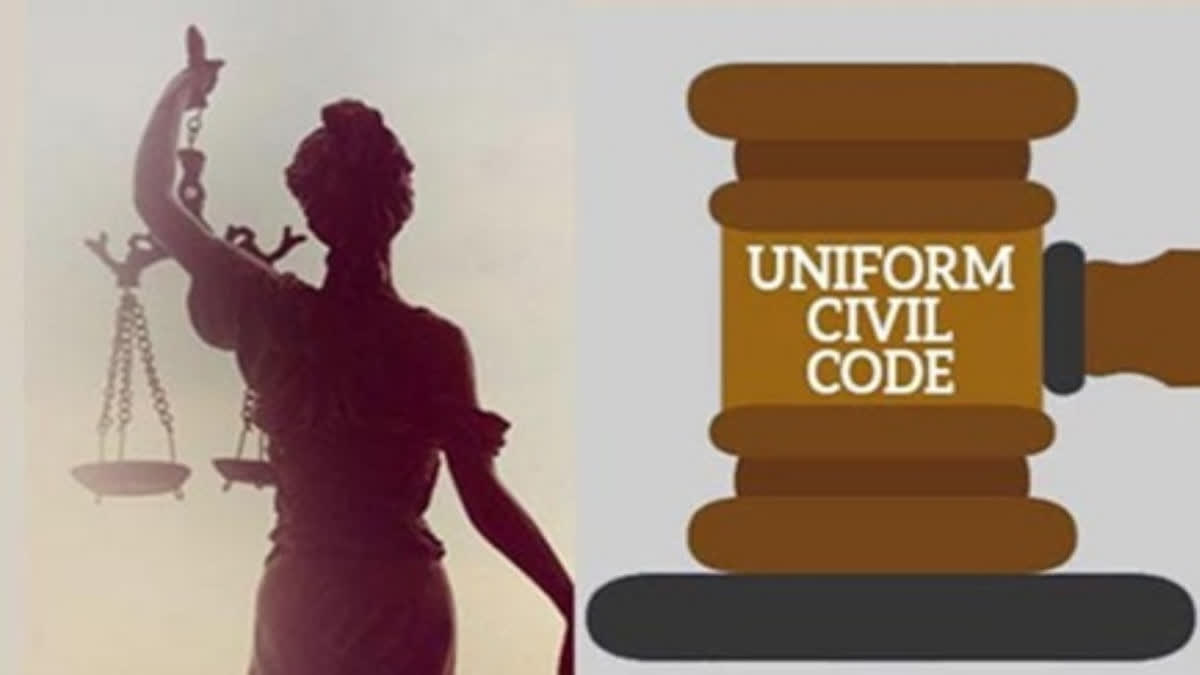New Delhi:The Law Commission of India has received an overwhelming response for the most comprehensive family law reforms since the independence of the country. In June this year, the Ministry of Law and Justice sent a reference to the Law Commission of India to examine the matter of the Uniform Civil Code for all the citizens in the country. After the ministry’s reference, the 22nd Law Commission started the consultation process with various stakeholders and members of the public and asked them to submit their views on the proposed law by July 13, but the last date was extended to July 28, which ended on Friday.
This is the second instance during Prime Minister Narendra Modi’s government when the views of stakeholders have been obtained through these fundamental reforms in family laws. Earlier, the issue was examined by the 21st Law Commission in October 2016 when it sought the view of the public through a questionnaire and then the 21st Law Commission issued public notice and appeals in March and April 2018.
Also read:UCC can jeopardise principles of religious diversity, minority rights, justice, says Jamiat chief
Given the overwhelming response to the proposed Common Civil Law, the 21st Law Commission issued a consultation paper on Reforms of Family Law in August 2018. However, there was no movement forward since then mainly due to the general elections of 2019 and thereafter the issue was put on the back burner due to the Covid-19 global pandemic in Prime Minister Narendra Modi’s second term.
However, Prime Minister has again taken up the issue in the last leg of his second term as the Lok Sabha elections are less than a year away. While addressing a BJP party programme in Madhya Pradesh last month, Prime Minister blamed the opposition parties for derailing the Uniform Civil Code. It was a clear signal of his government’s priority to implement a Common Civil Code before the next general elections due in early 2024.
Since the public consultation has been completed in the middle of the ongoing monsoon session then it is not likely that the Law Commission can process the public feedback and advise the government during the remainder of the monsoon session. If the Union government decides to move ahead with the proposed Uniform Civil Code then the winter session remains the only option for the government to get the parliamentary approval for this major family law reform.
Uniform Civil Code in Constitution
Article 44 of the Indian Constitution, which is part of directive principles of state policy under Chapter IV, says that the State shall endeavour to secure for the citizens a Uniform Civil Code throughout the territory of India. However, these directive principles are not binding in law therefore the country has different family laws for different communities such as Hindu personal law, which includes laws such as the Hindu Marriage Act of 1955, the Hindu Adoption and Maintenance Act of 1956, Special Marriage Act of 1954 for the litigation related to inter-religious marriages.
Also read:'Will wait for the draft': Top Congress lawyer-leaders discuss UCC
For other religious groups such as Muslims, Christians and Zoroastrians, separate personal laws govern the issue of marriage and divorce, inheritance and maintenance and custody of children among other things. However, there are some other laws such as Section 125 of the Code of Criminal Procedure (Cr.P.C.) and the Protection of Women from Domestic Violence Act of 2005 that deal with the issue of maintenance, but they are applicable to all religious groups and regions.
However, it has always been the Bhartiya Janata Party’s agenda that there should be a Uniform Civil Law for the entire country. In his address to BJP workers in Madhya Pradesh last month, Prime Minister Modi also referred to the observations made by the Supreme Court of India from time to time that the government should consider enacting a Common Civil Law for the nation, as he expressed his intention of implementing a Common Civil Law during the remainder tenure of his second term.


